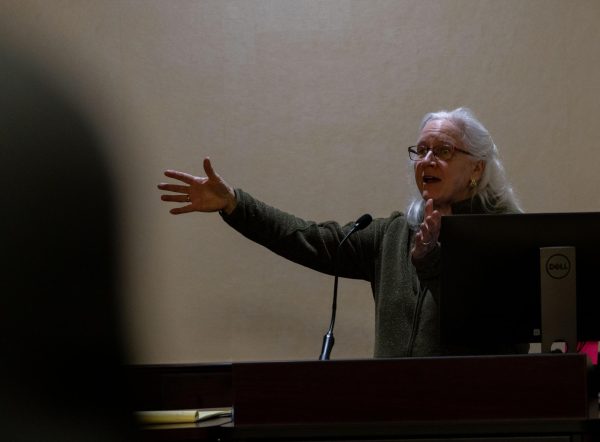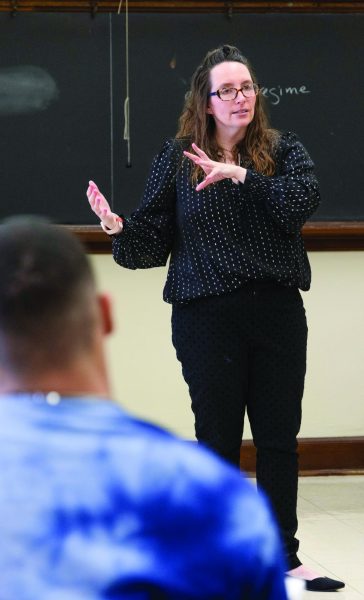WKU may raise admission standards, accept fewer students
July 25, 2013
With Kentucky’s pool of high school-age residents no longer growing, WKU must turn to raising admission standards for new students, recruiting from outside the state and improving efforts to keep those students enrolled, President Gary Ransdell said.
WKU’s Board of Regents met during its annual retreat Thursday with Kentucky’s state demographer, who told regents that the number of high school-age Kentuckians – the single largest source of WKU students – no longer is growing.
“As our university has grown dramatically over the past 15 years, we have penetrated that market pretty well,” Ransdell said. “In my opinion, we can no longer look to Kentucky students as a growth strategy.”
That, Ransdell said, means a paradigm shift for the university which has seen enrollment top 21,000 students in recent years. And, he said, it likely means a “slightly smaller” student body.
Key strategies, he said, are focusing on quality students, recruiting outside the state and internationally, and improving WKU’s retention rates. Fewer than half of the students who enroll at WKU as freshmen complete their degrees within six years. Too many, officials have said, drop out after a year or two.
“We are going to continue to raise our admission standards and accept fewer students,” Ransdell said. “Our strategy going forward is likely to be shaped around a slightly smaller student population. Rather than aggressive growth, we’re going to focus on retention, graduation rates and higher academic standards.”
Targeting student populations where retention is needed is a central focus moving forward, said Joelle Carter, assistant vice president for Retention and Student Services.
“We look at retention across the board,” Carter said. “There are certain student groups where retention is more of an issue. We can look at those gaps and develop programs to help retention in that regard moving forward.”
Ransdell said the university must do better than a 75 percent retention rate for freshmen and sophomores. Actions towards implementing higher standards have already taken place.
Ransdell said the university has accepted 500 fewer students for the 2013-14 academic year than in 2012-13.
“We’ve put higher admission standards into play over the last couple of years and this is the first year we’re beginning to see a pay off on that,” Ransdell said.
Ransdell also said ongoing improvements to the campus play a role in the strategy. WKU’s new Honors College and International Center building, slated to go up on Normal Street, for example, will aid in recruiting top-quality students, keeping them at WKU and pushing them to complete their degrees, he said.
Even though admissions requirements have become more challenging, Provost Gordon Emslie said, more opportunities for students have unfolded as well.
“With the state focus on retention and graduation rates, we felt it appropriate to apply a different admission criteria,” Emslie said. “We’ve also added a significant number of new scholarships … So we have more limited and partial tuition scholarships available to students who are fairly solid students, but were just not competitive for other scholarships (with higher qualification levels) in the past.”
Ransdell said a major part of the reasoning is because the university must control its own future financially rather than depending on funding from the Kentucky General Assembly. WKU and education overall is only one of the many areas that receive funds from the state.
State funding represents less than one-fifth of the WKU budget, down significantly over the past decade.
“While I believe we’ve reached an end to the budget cutting process for the foreseeable future, I am not optimistic that the General Assembly will resume a significant level of new state funding,” Ransdell said.
“We’re coming to the conclusion that state funding to support growing enrollment is not going to be forthcoming,” he said. “Therefore, what we have to do as an institution is to ensure strong quality and strong financial underpinning.”
This shift in the university philosophy is a highlighted topic for regents to consider at their retreat and in the future. Ransdell said the process will take a lot of time and thought from the regents.
“These are all matters that we’re contemplating,” Ransdell said. “There is not a strategy manual in place. We’re studying all these dimensions and will discuss it with the board.”























